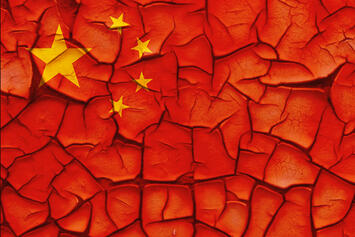
David Goldman’s remarks on America’s challenges against China are, for the most part, spot-on. He is particularly on-target about two realities that may displease traditional conservatives: the failure of Trump’s China policy, and the need for some form of industrial policy.
Goldman may have voted twice for Trump (I did not), but he is no MAGA die-hard. He can read the numbers, which show growing dependence on China and an ever-widening trade deficit: imports from China rose over 30% more starting in January 2018, when Trump imposed tariffs. This 19th-century strategy simply did not work in the 21st.
But perhaps Goldman’s boldest move is to endorse some form of national “industrial policy.” This reflects a growing conservative break with both libertarian ideologues and the board room suite. The shift away from free-market fundamentalism comes from the ground up—it is motivated by constituents in the Heartland, the South, and Main Street, as well as what is left of industrial unions.
These policy proposals were the focus of Goldman’s talk. But perhaps he could have spent more time exposing what he calls “a technocratic elite” that has benefited from China but hurt most Americans. Since 1990, the U.S. deficit in trade goods with China has ballooned from under $10 billion annually to $419 billion last year. This has enriched many of our leading manufacturing companies while costing an estimated 3.4 million job losses in the States since 2001.
Besides the giant retail chains, who benefited from cheap imports, the biggest China boosters can be found in two sectors: finance and technology. Leaders in these areas have thrived while much of the economy stagnated. Apple, for instance, negotiated its own $275 billion deal, guaranteeing China access to the latest technology. Worried about our dependence on Taiwanese and Korean chips? Apple recently announced plans to source some of its chips in China. Apple also underwrites and profits from China’s ever-expanding surveillance state.
Wall Street follows a similar cast. Ray Dalio, founder of the giant Bridgewater Associates hedge fund, dismisses China’s repression of its Uighur population and its crackdown on democratic sentiment in Hong Kong as the result of a “sacrosanct” desire for sovereignty. Wall Street’s recent embrace of crushing Environmental, Social, and Governance (ESG) requirements places ever greater burdens on U.S. firms to cut carbon while demanding little from China, though its notoriously supply chains are notoriously high-carbon and it emits more greenhouse gases than the United States and the E.U. combined. The hypocrisy of financial firms like Blackrock calling to shut down U.S. energy while sending cash to China, which continues to build new coal plants, seems extreme even by Wall Street standards.
Systems Failure
But though I agree with Goldman on the nature and depth of China’s threat, I am somewhat more optimistic about America’s chances and less so about the Middle Kingdom. Today, China is an aging, increasingly class-ridden society facing slowing economic growth, a looming property melt-down, and demographic collapse.
Read the rest of this piece at American Mind.
Joel Kotkin is the author of The Coming of Neo-Feudalism: A Warning to the Global Middle Class. He is the Roger Hobbs Presidential Fellow in Urban Futures at Chapman University and Executive Director for Urban Reform Institute. Learn more at joelkotkin.com and follow him on Twitter @joelkotkin.
Photo: composite based on China's flag, from Wikimedia under CC 4.0 License.












